Ford Tourneo Connect vs Mercedes Citan Transporter - Differences and prices compared
Compare performance (150 HP vs 131 HP), boot space and price (27300 £ vs 21700 £ ) at a glance. Find out which car is the better choice for you – Ford Tourneo Connect or Mercedes Citan Transporter?
Costs and Efficiency:
When it comes to price and running costs, the biggest differences usually appear. This is often where you see which car fits your budget better in the long run.
Mercedes Citan Transporter has a evident advantage in terms of price – it starts at 21700 £ , while the Ford Tourneo Connect costs 27300 £ . That’s a price difference of around 5601 £.
Fuel consumption also shows a difference: Ford Tourneo Connect manages with 0.50 L and is therefore convincingly more efficient than the Mercedes Citan Transporter with 5.10 L. The difference is about 4.60 L per 100 km.
As for electric range, the Mercedes Citan Transporter performs significantly better – achieving up to 290 km, about 171 km more than the Ford Tourneo Connect.
Engine and Performance:
Under the bonnet, it becomes clear which model is tuned for sportiness and which one takes the lead when you hit the accelerator.
When it comes to engine power, the Ford Tourneo Connect has a slightly edge – offering 150 HP compared to 131 HP. That’s roughly 19 HP more horsepower.
In acceleration from 0 to 100 km/h, the Ford Tourneo Connect is a bit quicker – completing the sprint in 10.10 s, while the Mercedes Citan Transporter takes 11.70 s. That’s about 1.60 s faster.
There’s also a difference in torque: Ford Tourneo Connect pulls evident stronger with 350 Nm compared to 270 Nm. That’s about 80 Nm difference.
Space and Everyday Use:
Whether family car or daily driver – which one offers more room, flexibility and comfort?
Both vehicles offer seating for 5 people.
In curb weight, Mercedes Citan Transporter is slightly lighter – 1381 kg compared to 1542 kg. The difference is around 161 kg.
When it comes to payload, Ford Tourneo Connect hardly perceptible takes the win – 818 kg compared to 787 kg. That’s a difference of about 31 kg.
Who wins the race in the data check?
The Ford Tourneo Connect is decisively ahead in the objective data comparison.
This result only shows which model scores more points on paper – not which of the two cars feels right for you.
Costs and Consumption
View detailed analysis
Engine and Performance
View detailed analysis
Dimensions and Body
View detailed analysis
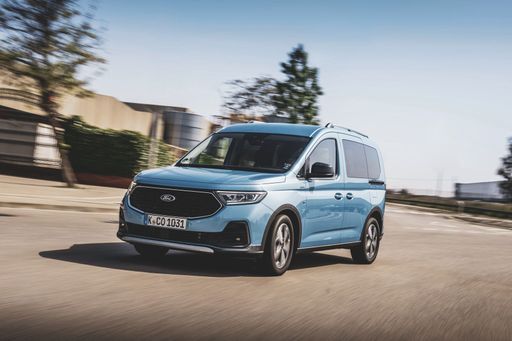
Ford Tourneo Connect
Ford Tourneo Connect
The Ford Tourneo Connect is a practical, surprisingly polished people-mover that balances family-friendly flexibility with car-like driving manners. With clever storage, sliding doors and a bright, airy cabin it’s a smart choice for buyers who want sensible versatility without sacrificing everyday comfort — and it’s oddly enjoyable to drive for its size.
details
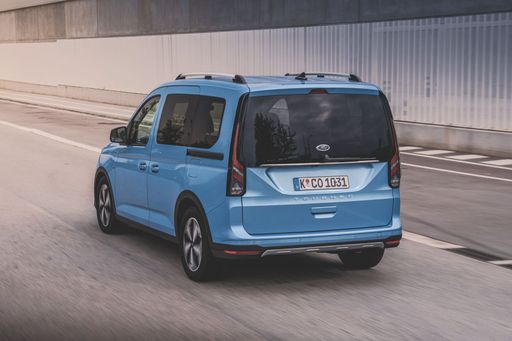
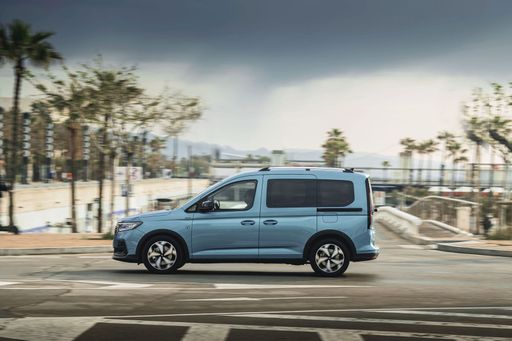
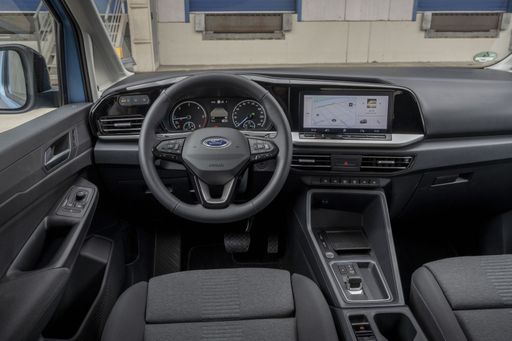
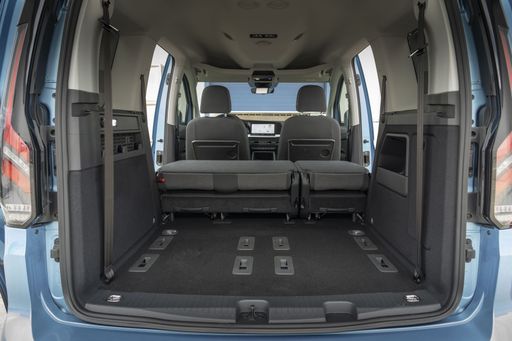
Mercedes Citan Transporter
The Mercedes Citan is a practical, city-friendly van that blends Mercedes' premium touches with sensible commercial utility — it's nimble in tight streets, easy to load, and feels more polished than its price suggests. For small-business owners who want something professional-looking without fuss, the Citan is a dependable workhorse that won’t embarrass you at client meetings and is surprisingly pleasant to drive.
detailsCosts and Consumption |
|
|---|---|
|
Price
27300 - 41900 £
|
Price
21700 - 33300 £
|
|
Consumption L/100km
0.5 - 6.9 L
|
Consumption L/100km
5.1 - 6.9 L
|
|
Consumption kWh/100km
-
|
Consumption kWh/100km
18.7 - 21.1 kWh
|
|
Electric Range
116 - 119 km
|
Electric Range
262 - 290 km
|
|
Battery Capacity
-
|
Battery Capacity
45 kWh
|
|
co2
11 - 164 g/km
|
co2
0 - 156 g/km
|
|
Fuel tank capacity
-
|
Fuel tank capacity
54 L
|
Dimensions and Body |
|
|---|---|
|
Body Type
High Roof Estate
|
Body Type
Cargo Van
|
|
Seats
5
|
Seats
2 - 5
|
|
Doors
-
|
Doors
4 - 5
|
|
Curb weight
1542 - 1781 kg
|
Curb weight
1381 - 1939 kg
|
|
Trunk capacity
1213 - 1720 L
|
Trunk capacity
-
|
|
Length
-
|
Length
4498 - 4922 mm
|
|
Width
1855 mm
|
Width
1859 mm
|
|
Height
-
|
Height
1819 - 1830 mm
|
|
Max trunk capacity
-
|
Max trunk capacity
2900 - 3620 L
|
|
Payload
563 - 818 kg
|
Payload
449 - 787 kg
|
Engine and Performance |
|
|---|---|
|
Engine Type
Plugin Hybrid, Petrol, Diesel
|
Engine Type
Diesel, Petrol, Electric
|
|
Transmission
Automatic, Manuel
|
Transmission
Manuel, Automatic
|
|
Transmission Detail
Dual-Clutch Automatic, Manual Gearbox
|
Transmission Detail
Manual Gearbox, Dual-Clutch Automatic, Reduction Gearbox
|
|
Drive Type
Front-Wheel Drive, All-Wheel Drive
|
Drive Type
Front-Wheel Drive
|
|
Power HP
102 - 150 HP
|
Power HP
95 - 131 HP
|
|
Acceleration 0-100km/h
10.1 - 13.5 s
|
Acceleration 0-100km/h
11.7 - 13.8 s
|
|
Max Speed
-
|
Max Speed
132 - 183 km/h
|
|
Torque
220 - 350 Nm
|
Torque
240 - 270 Nm
|
|
Number of Cylinders
4
|
Number of Cylinders
4
|
|
Power kW
75 - 110 kW
|
Power kW
70 - 96 kW
|
|
Engine capacity
1498 - 1968 cm3
|
Engine capacity
1332 - 1461 cm3
|
General |
|
|---|---|
|
Model Year
2024 - 2025
|
Model Year
2021 - 2024
|
|
CO2 Efficiency Class
B, E, F
|
CO2 Efficiency Class
E, F, D, A
|
|
Brand
Ford
|
Brand
Mercedes-Benz
|
Is the Ford Tourneo Connect offered with different drivetrains?
Available configurations include Front-Wheel Drive or All-Wheel Drive.
